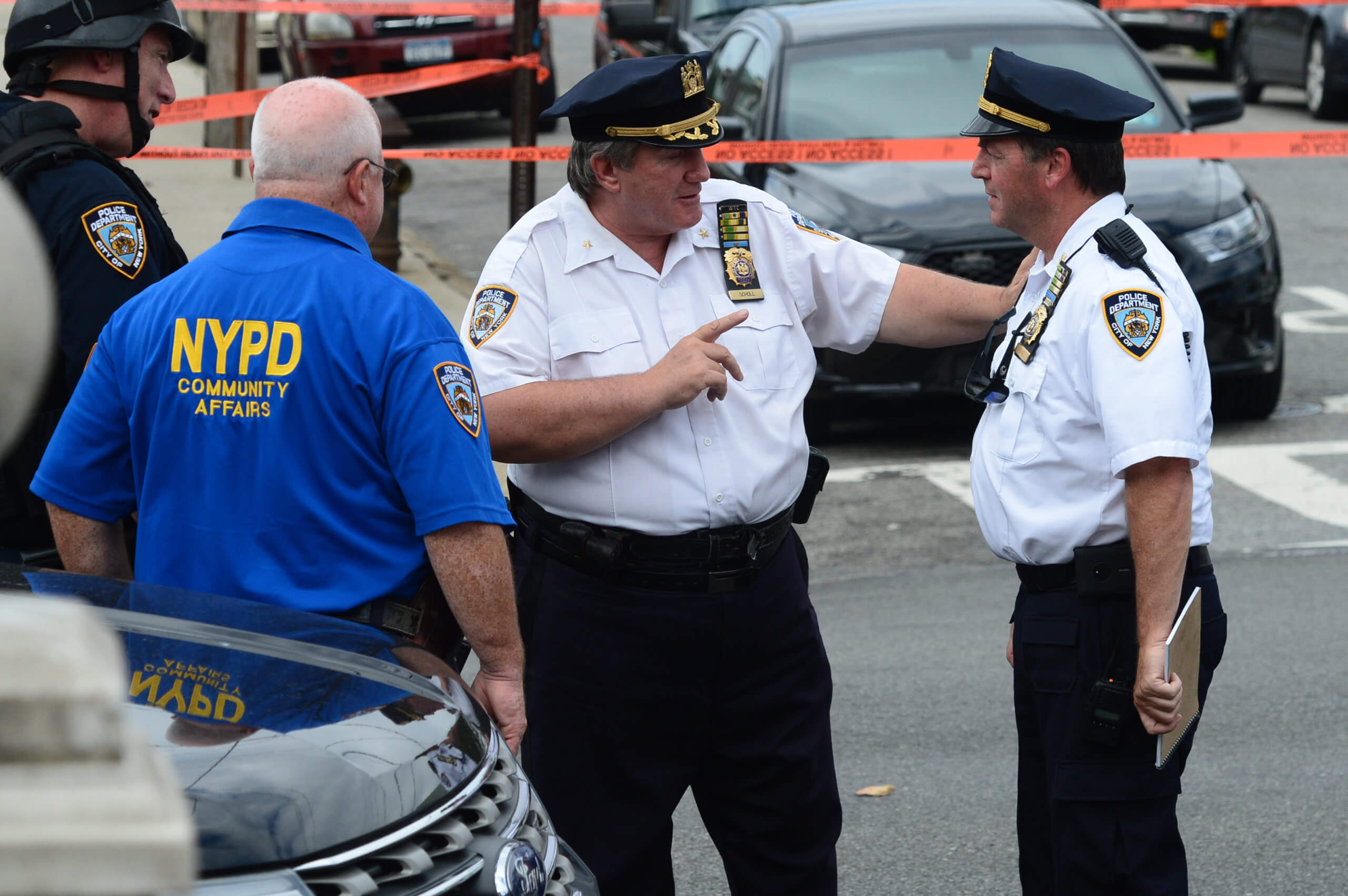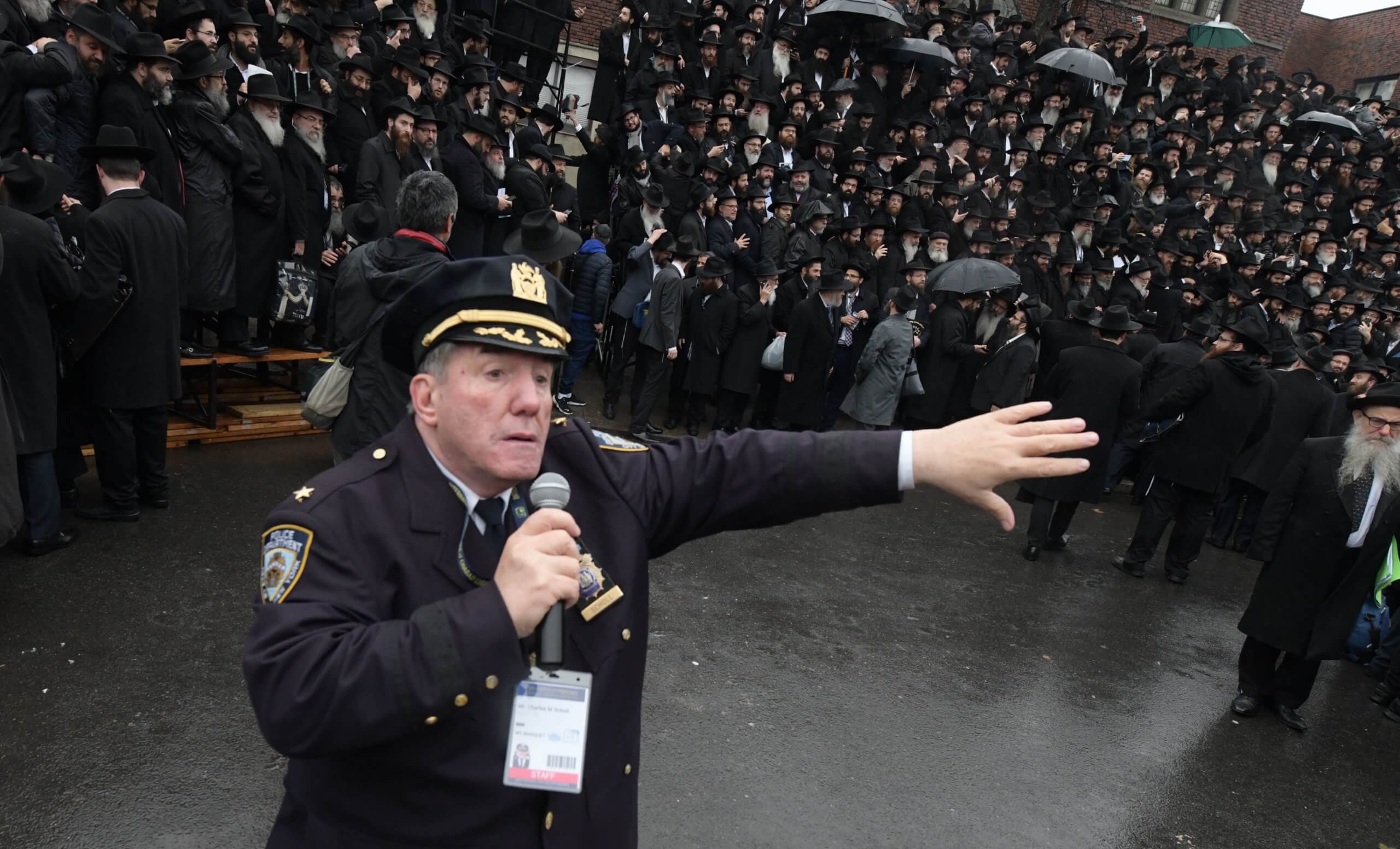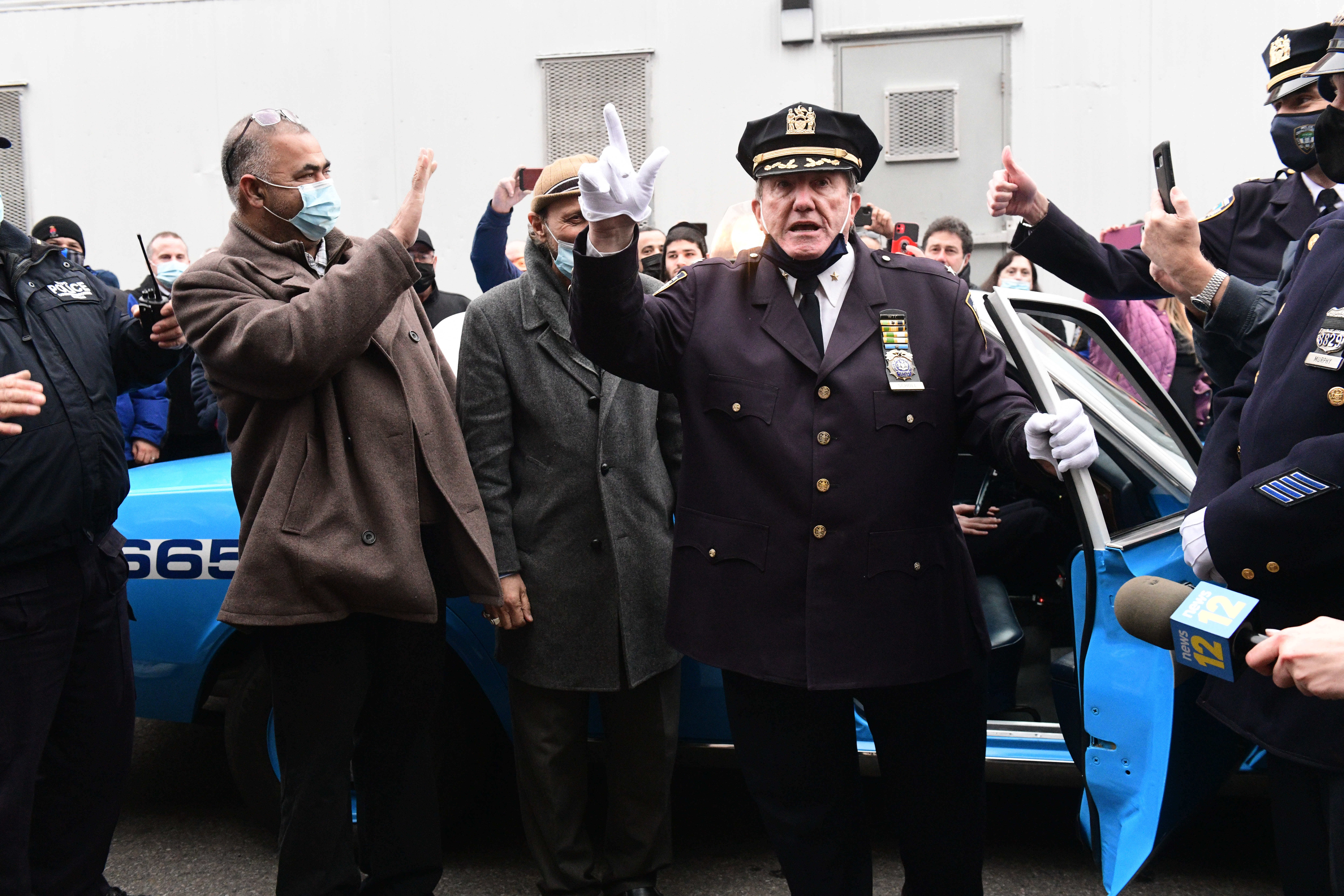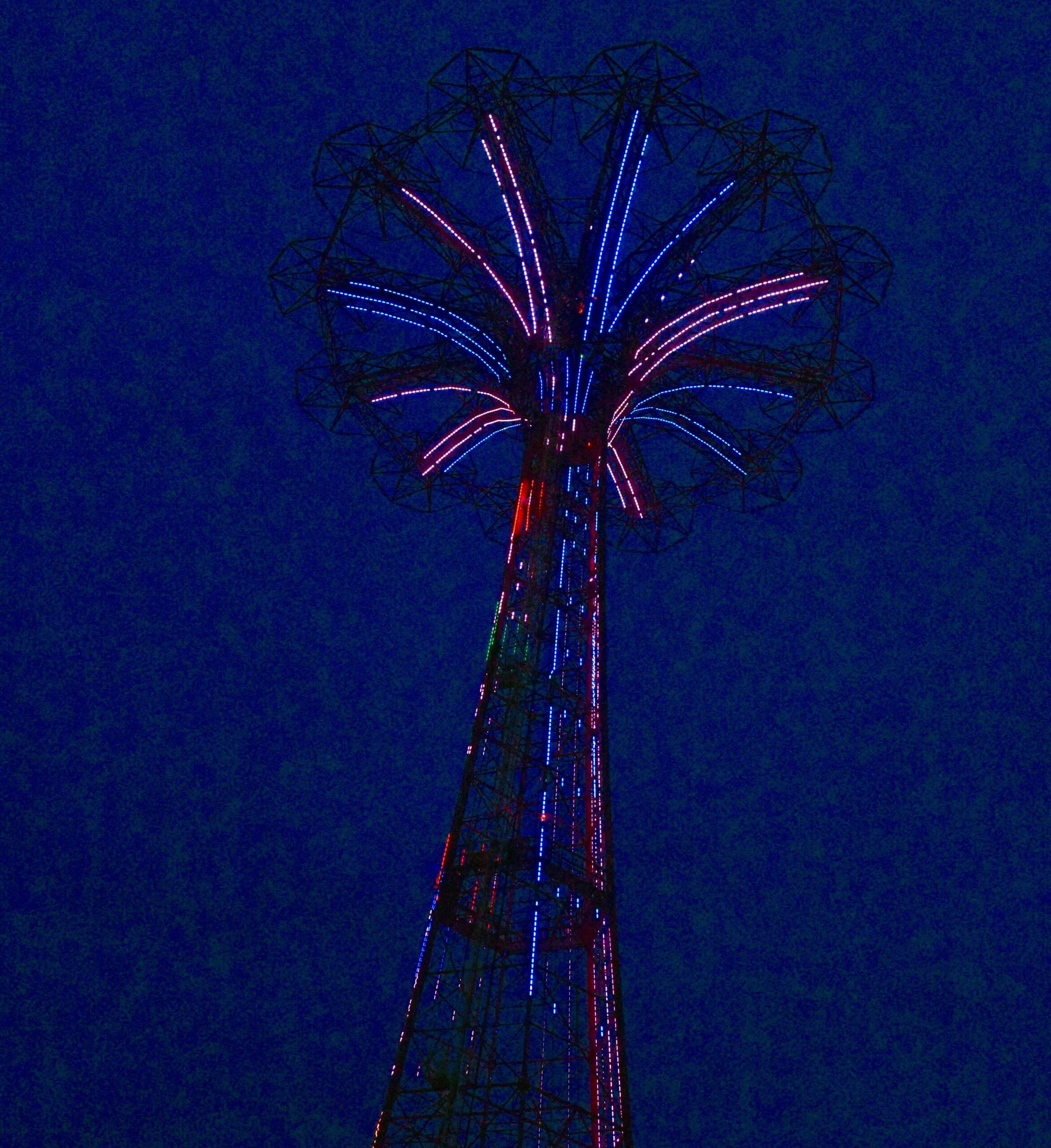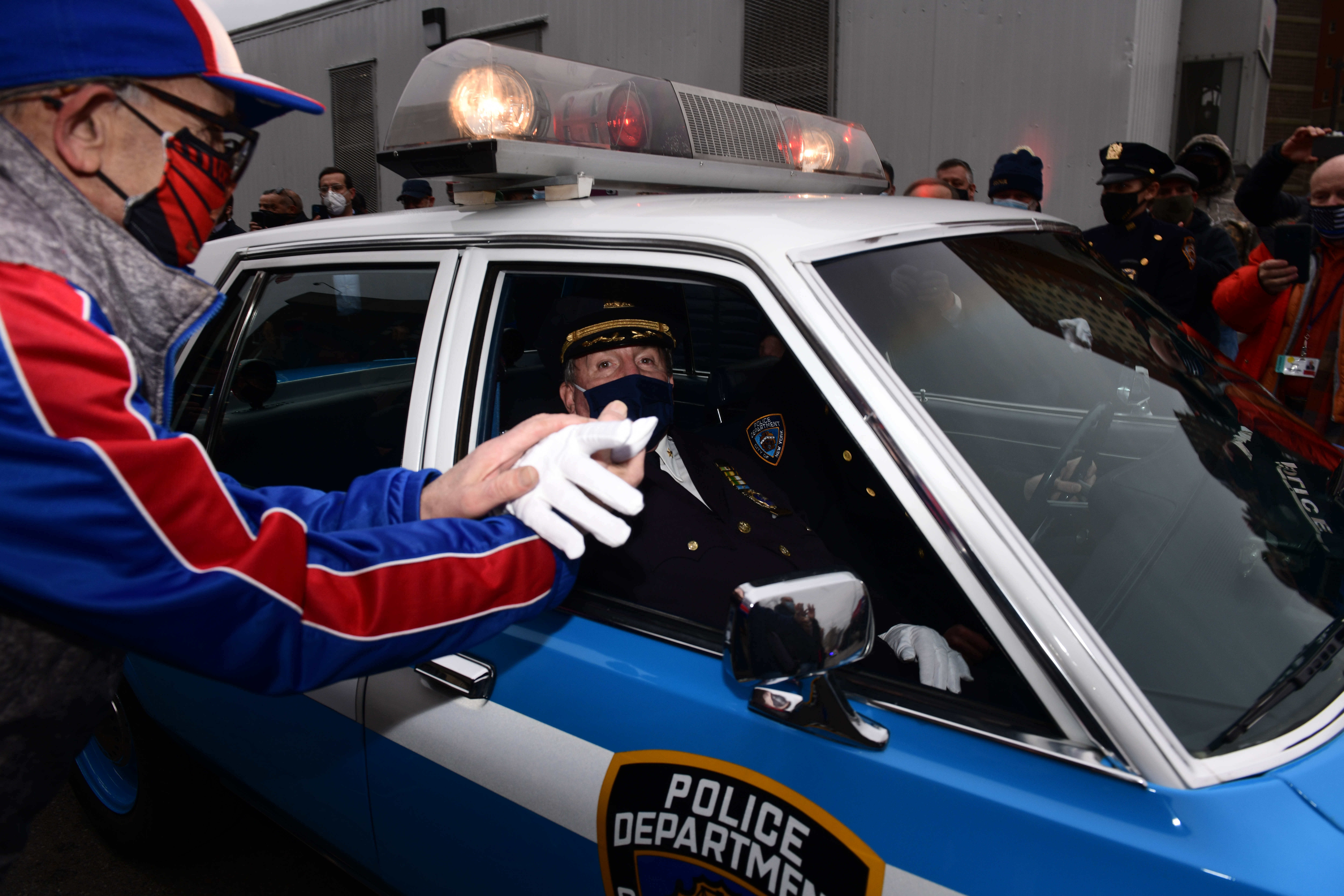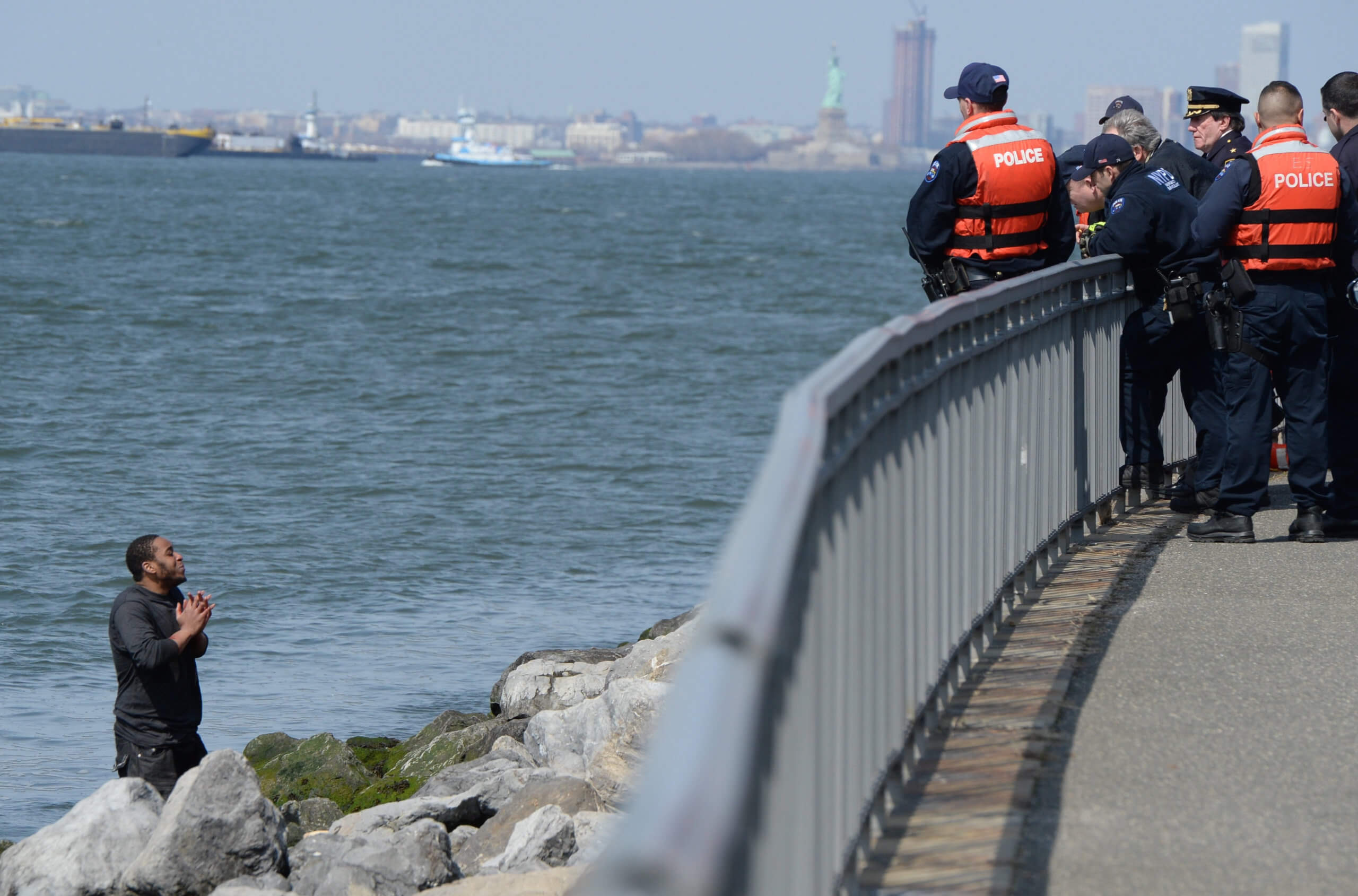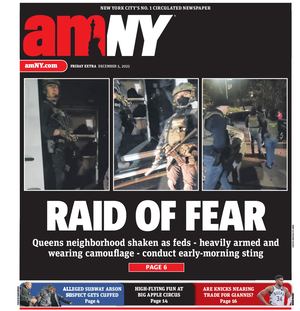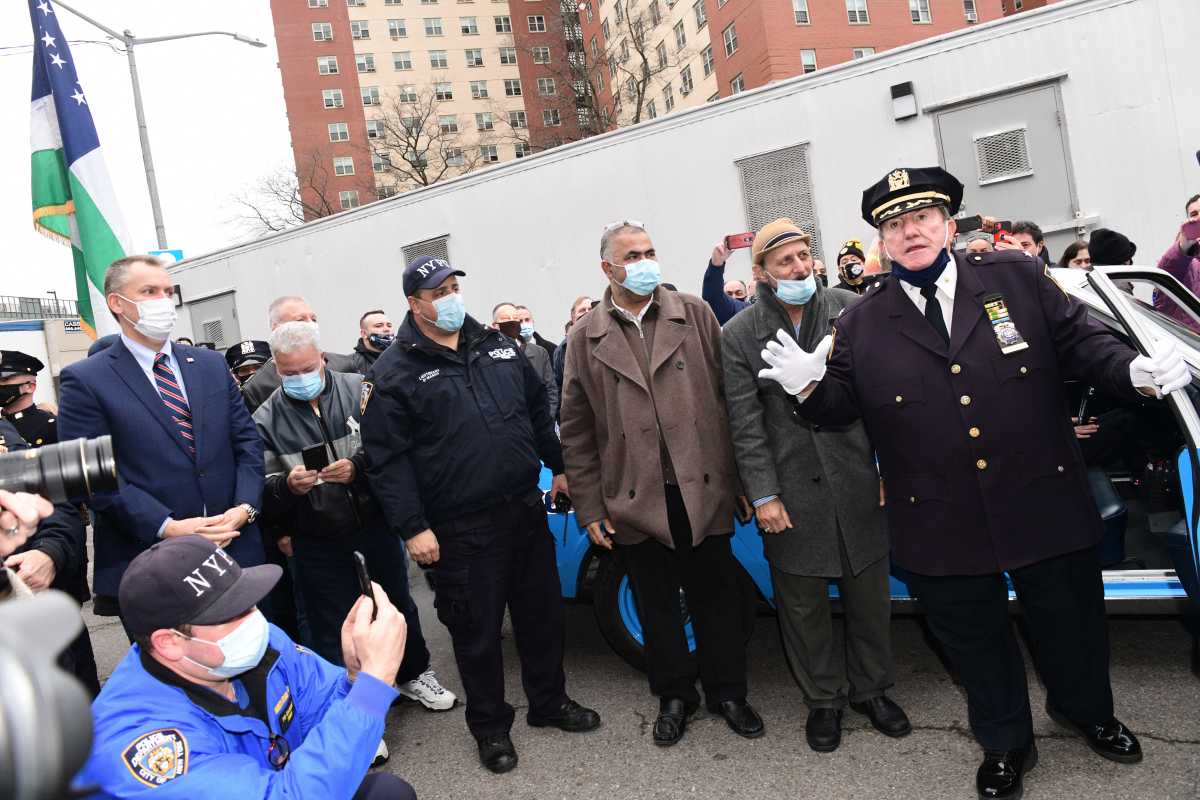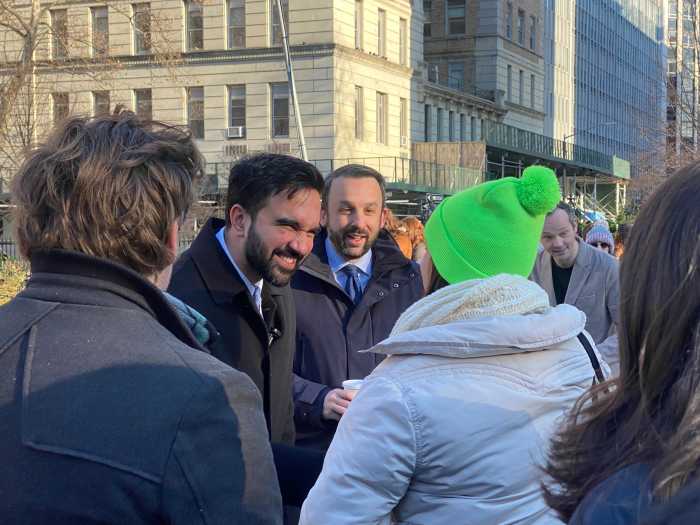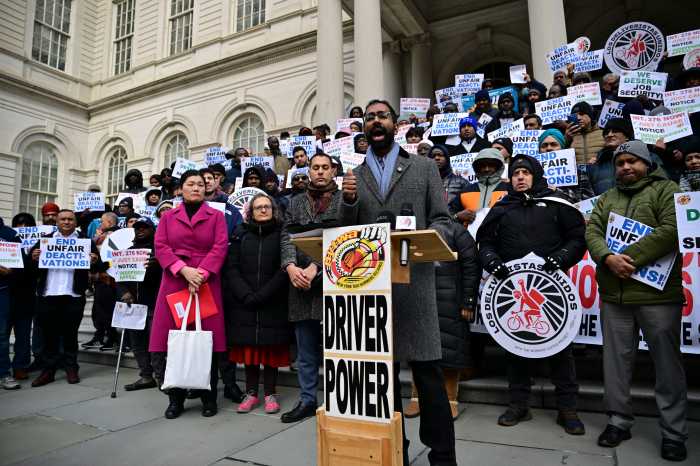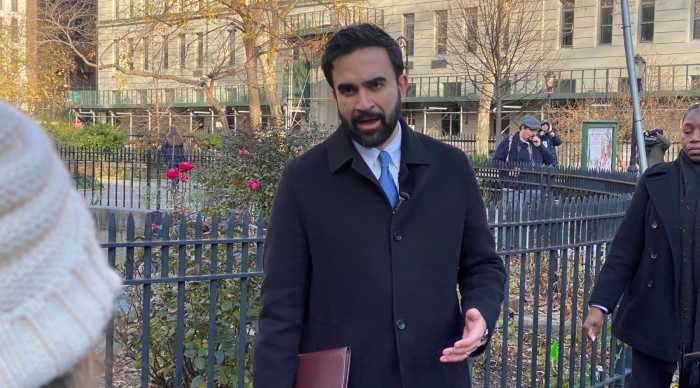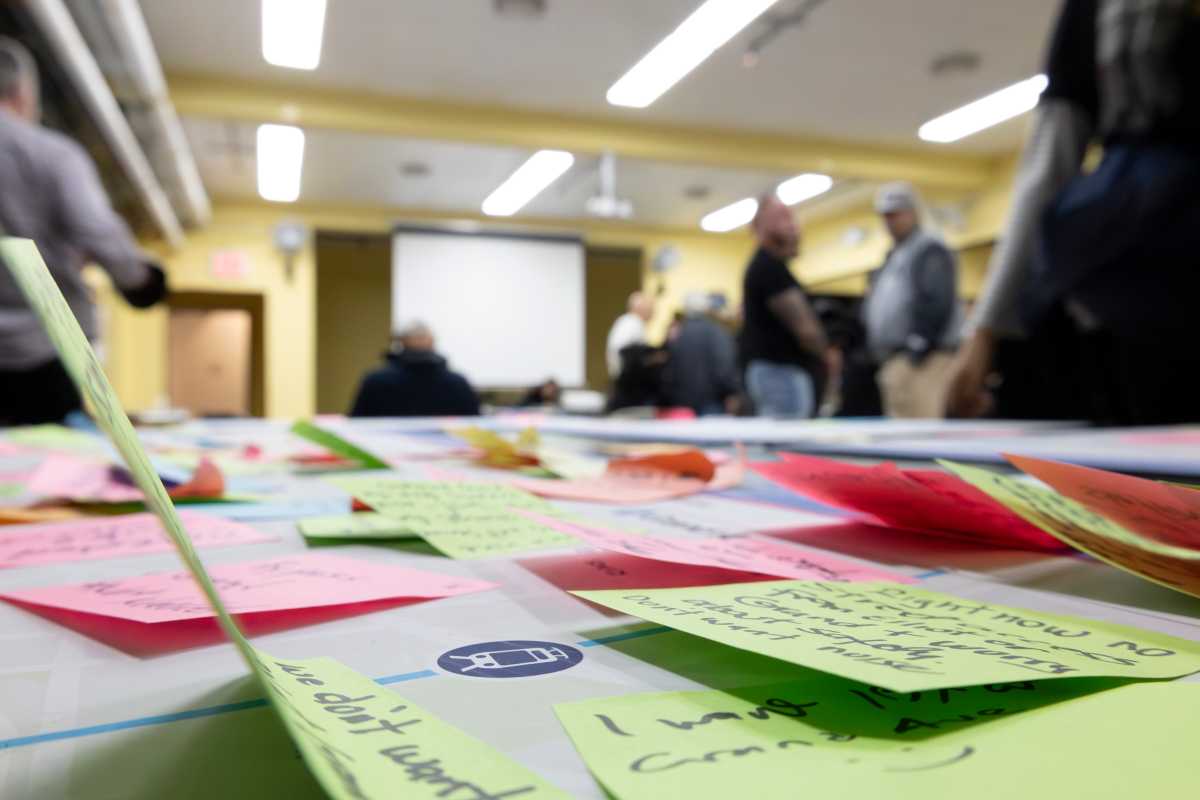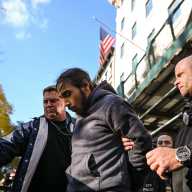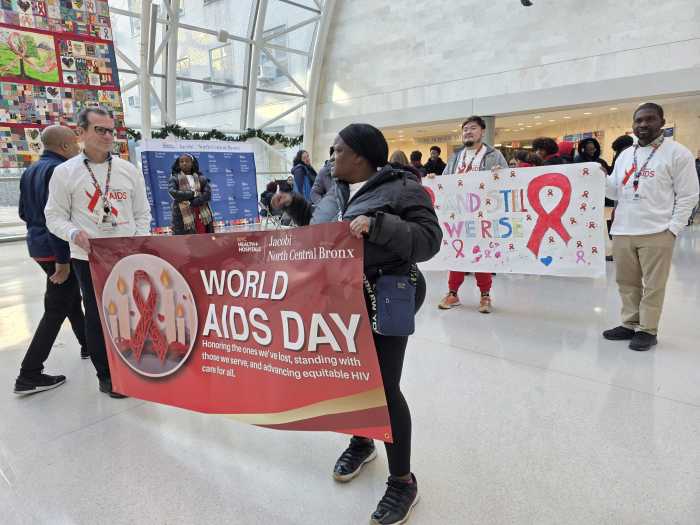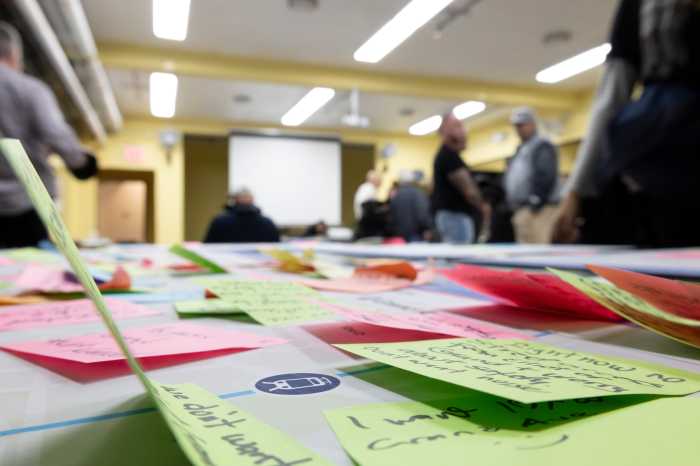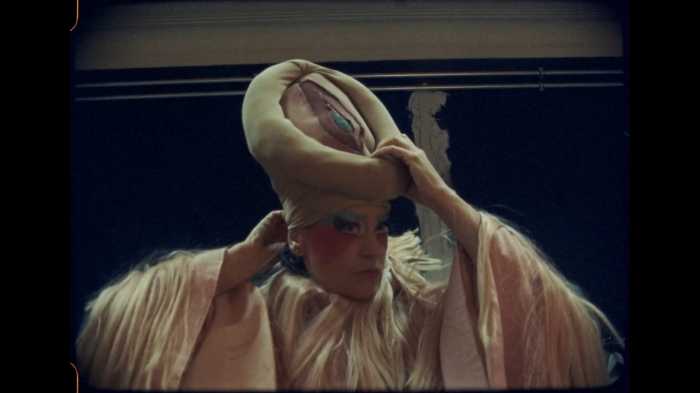On his final day on the job after 41 years, Deputy Chief Charles Scholl loaded dozens of plaques and awards presented to him by community groups into boxes at his office at Brooklyn South Command in Flatbush.
He took video of the room before packing it up, savoring a successful, four-decade career that came to a graceful end at the mandatory retirement age of 62.
Scholl’s admiring colleagues say he practically goes out kicking and screaming from a job he loved – despite 2020 being the toughest of his career. He was saluted by Commissioner Dermot Shea, Chief of Department Terence Monahan and a large number of on-duty and retired commanders.
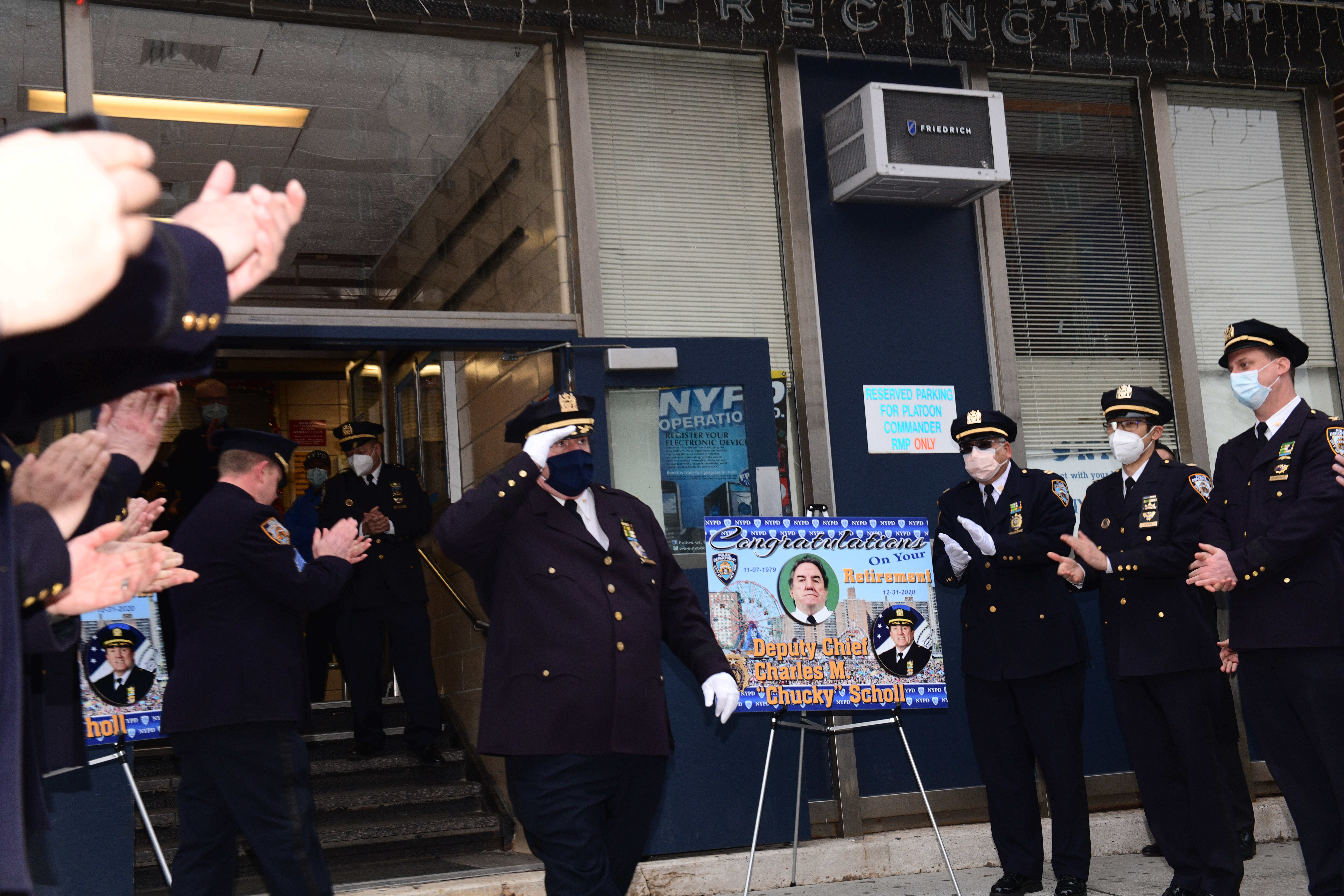
The Brooklyn-born and raised cop exited the Coney Island 60th Precinct stationhouse to applause from scores of cops community leaders and even members of the media on Dec. 31. Many of them remembered Scholl as a man of patience and truth, no matter how difficult the truth might be. His honesty and dedication gained him numerous accolades over the years and his fellow officers were there to make sure they showed appreciation.
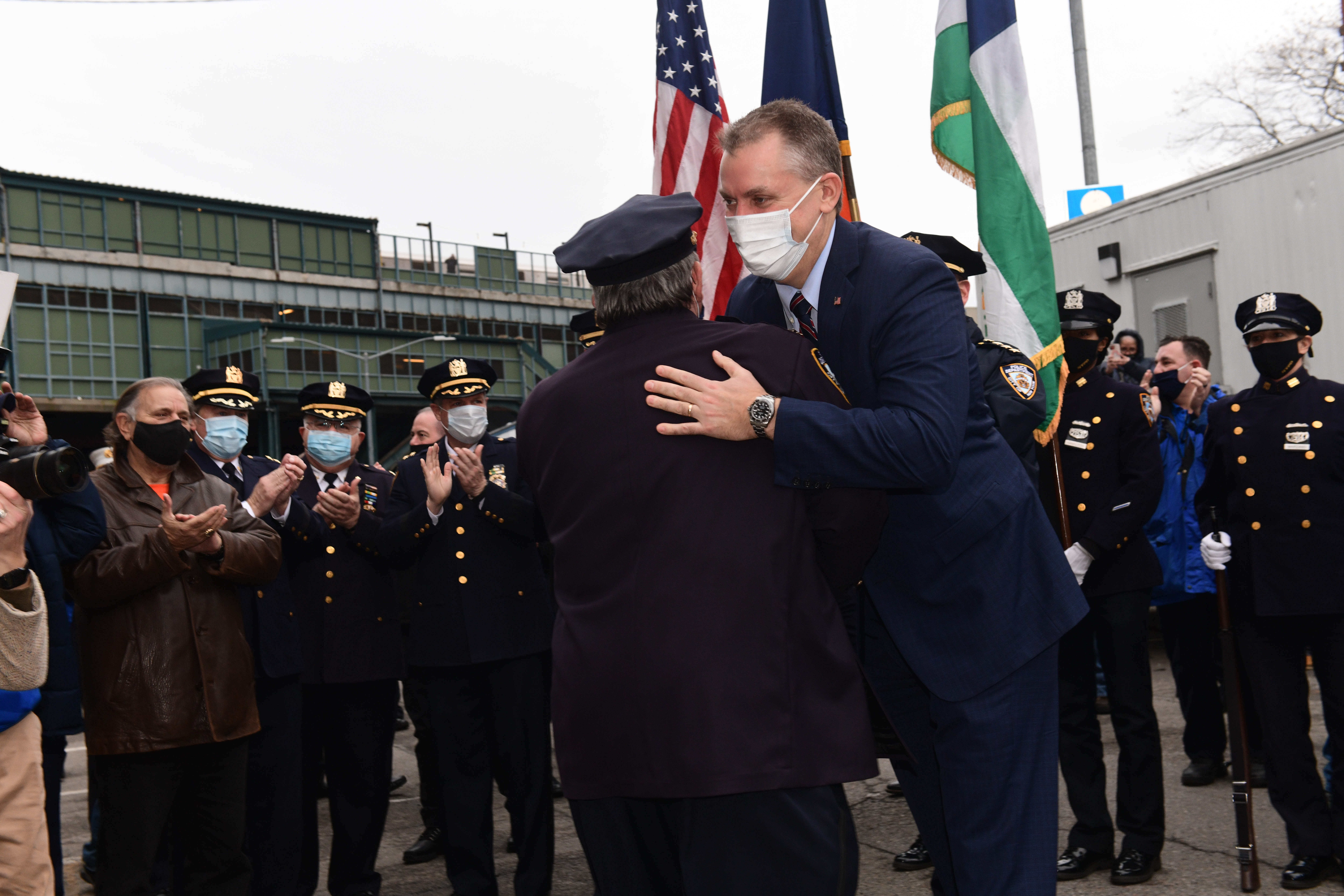
Scholl joined the NYPD in 1979, two years after he and his friends saw his first shooting as a teen, on the infamous night of July 13, 1977 in Carroll Gardens. Dominick Ciscone, 17, was gunned down on Nelson and Court Street – the only homicide during that night in which New York was crippled by a massive power outage.
“We were on the corner when it happened – we practically saw the kid get murdered,” Scholl said of first teenage experience with gun violence. “A neighborhood kid got shot and I swore that if I became a cop, I would try to find out who did this. It’s still unsolved – may be that’s part of the reason I became a cop.”
Scholl was born, raised and still lives in Carroll Gardens. A lifelong Catholic, Scholl was baptized in St. Mary Star of the Sea Church and attended the parish school before going onto Bishop Ford High School in Park Slope. He received his bachelor’s degree in Police Science from John Jay College of Criminal Justice, where he also earned the Police Foundation Scholarship Award, given to a member of the NYPD with the highest grade-point average.
Upon graduation, he landed back in Brooklyn in a neighborhood stabilization unit and rose to the rank of sergeant in 1985 while in Downtown Brooklyn’s 84th Precinct. The 1980s were the height of both the violent crack epidemic and also, the AIDS epidemic. Crack dealers and their users were committing heinous acts, while intravenous drug users and many in the gay community suffered from HIV and AIDS.
“I really didn’t know about AIDS so when I once went to parole hearing, they handed me a mask and I said, ‘why’ and they said the man had AIDS,” Scholl recalled, likening it to wearing a mask again for the COVID-19 pandemic.
He was lucky never to have been infected as 20% of the force was out sick with COVID-19 earlier in 2020. Despite the fear of getting sick, Scholl refused to surrender and remained resolutely on the job.
Scholl had been a captain at the 61st Precinct in bustling Sheepshead Bay before eventually moving on to Crown Heights’ 71st Precinct and later becoming deputy inspector and commander of the 60th Precinct in Coney Island, one of his favorite haunts as a child. He was determined to bring down crime and make the amusement area safe and attractive for visitors after years of economic stagnation.
“All of the neighborhoods had a piece of my heart, but when you are King of Coney, you are responsible for so many people – I was like a kid in the candy store in Coney,” he recalled. “I was responsible for the well-being for all those tourists, and I had a lot of pride as commander. I knew the Cyclone, the old Astroland, and was at all the concerts with Marty Markowitz (former borough president). That was such a big thing for me.”
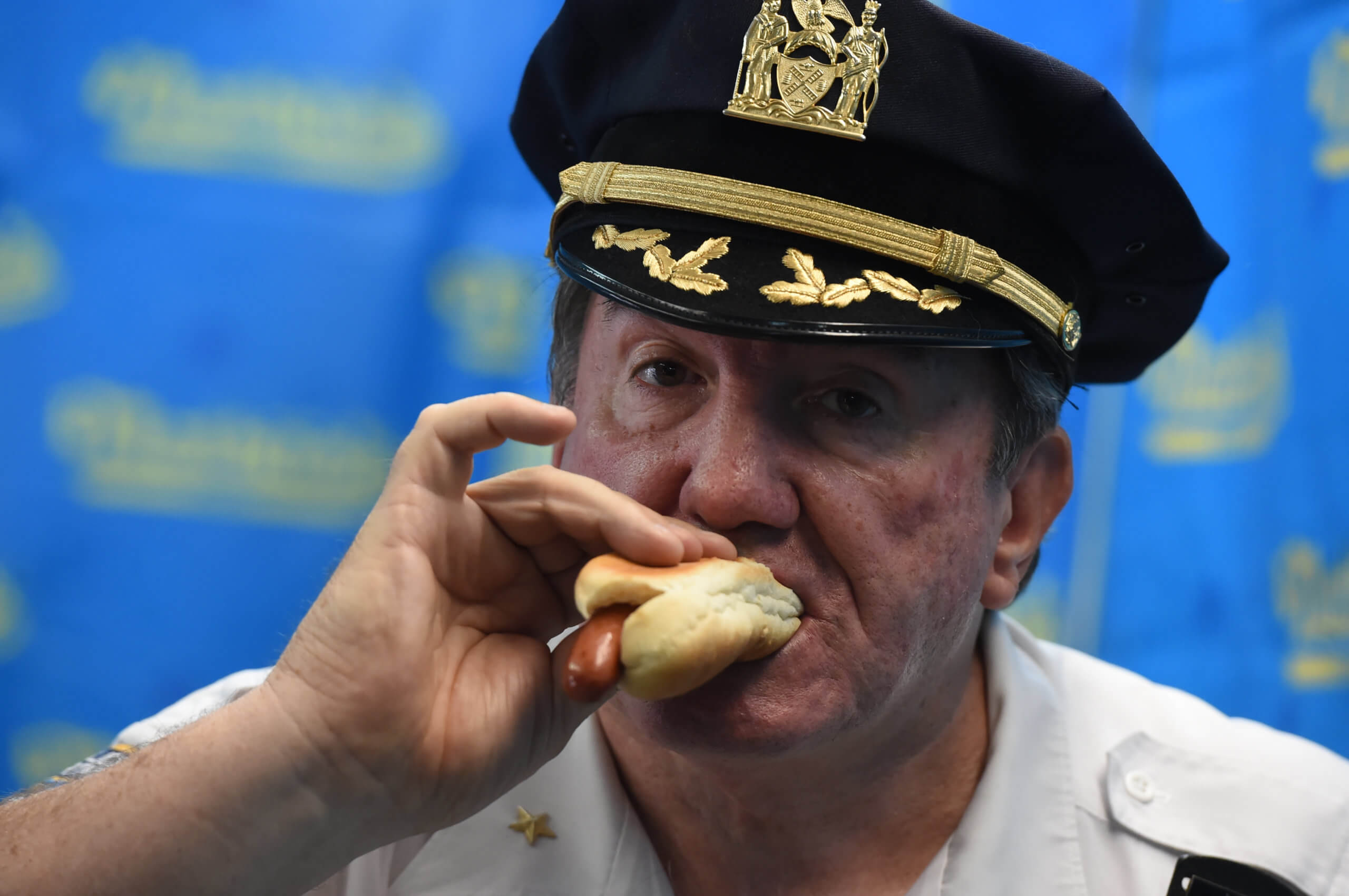
When the Great Irish Fair was being held in Coney Island on the old Steeplechase lot, Scholl encountered the Bishop Thomas Daily, according to published reports. He had a picture taken with Bishop Daily at the Great Irish Fair. Sometime later, he said, “I had the bishop sign it and he wrote, ‘Chief, God bless you and your family.’”
“I had to say to him, ‘Your Eminence, I’m only a deputy inspector,” and he said to me, ‘I’m a bishop. I know things.’ The rest is history.”
Scholl has seen a lot in his years, most horrifying was the death of thousands at the World Trade Center on 9/11. He worked many days coordinating security for much of the Battery Park area and has since marveled at the areas comeback from devastation.
He also remembered worrying for his officers at the 60th precinct during Hurricane Sandy. The superstorm submerged most of the stationhouse on West 8th Street, trapping officers in their flooded vehicles, and nearly swept several officers away in the rising waters.
“I thought we were going to going to lose a lot of officers that night,” said Scholl, having made strong ties with many of those cops.
Unlike many other cops retiring this year, Scholl is not doing this by choice, despite this being one of the most difficult year’s of his career.
He was on the front lines at the Barclays Center where much of the turmoil began after the death of George Floyd at the hands of Minneapolis cops. Scholl was also the commander at recent flare-ups of the Hasidic Jewish community in Borough Park recently, where a normally peaceful crowd became something else.
“Anytime there’s a crowd, whether it is at the Barclays Center or just about any demonstration, there are people no matter what you do, you’re not going to please because they come with an agenda,” Scholl said. “I would caution the young cops and their commanders not to be pulled into the trap by the words the demonstrators are using or the violence they are trying to inflict. I would tell them keep your composure and find out their motive – that happened in Borough Park where some were there for a cause, while others were there for entertainment or anti-police rhetoric. I tell the cops to take a step back and remember your training from the academy.”
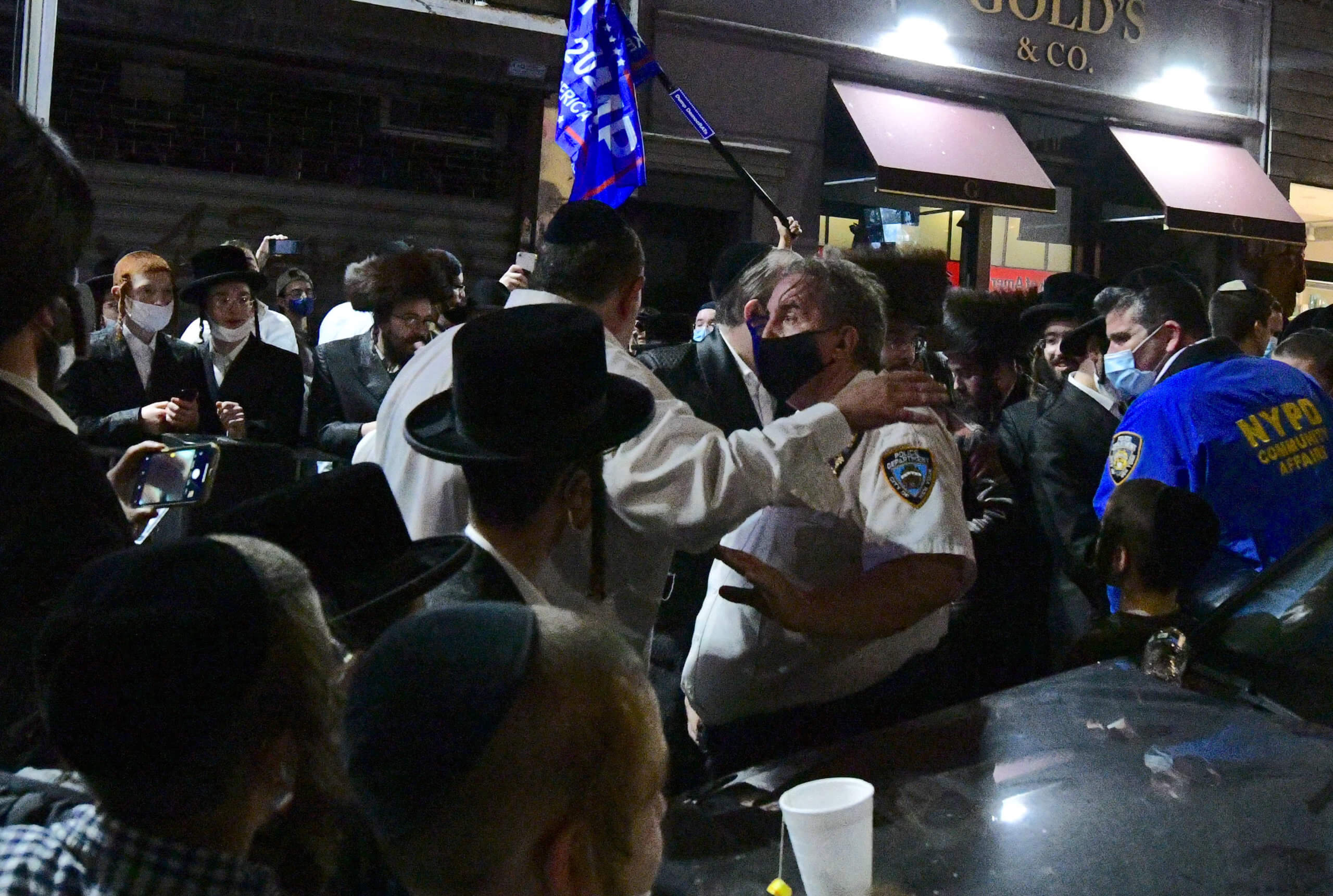
But while he has covered some of the most violent protests in 41 years — going back to the storming of Sydenham Hospital in Harlem in 1980 by angry demonstrators seeking to keep the facility open; the Tompkins Square occupation by the homeless in the 1990s; and Occupy Wall Street in 2011 — he said the 2020 demonstrations were the most challenging of his career.
“I’ve never seen anti-police rhetoric at this level,” Scholl recalled of the protests that began in May for him at the Barclays Center.
“In the past, protests would happen, and then they would end,” he added. “This time, it seemed it was just people who didn’t like the police and as much as I tried – I usually can win over anybody – that’s when I knew there was more to this than Black lives matter. It was just people who didn’t like cops and many wanted to wreak havoc.”
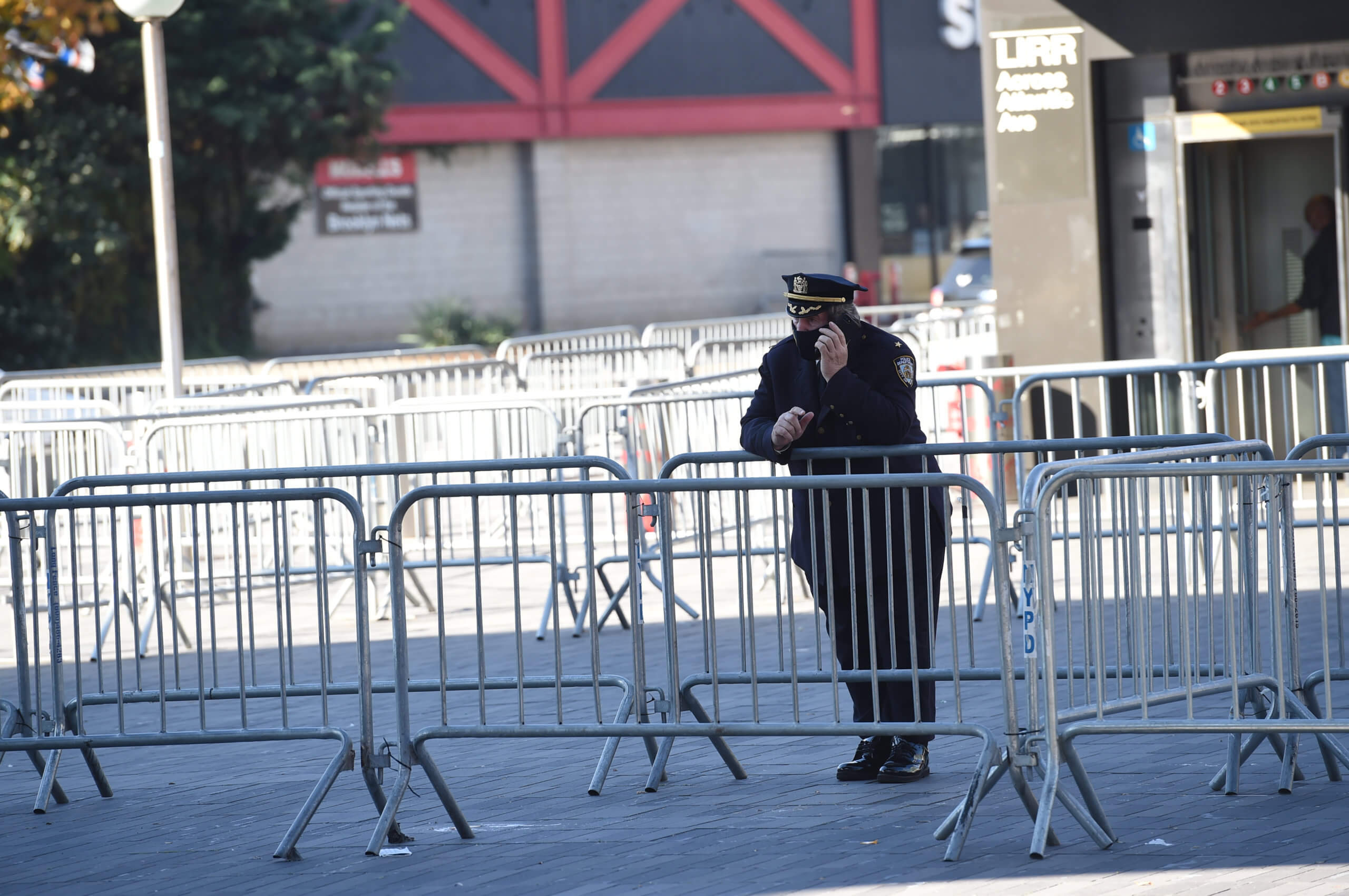
In his years, Scholl has gained both the trust and admiration of his communities by taking a personal interest in their safety – he would sometime show up at crime scenes on his off hours in a Yankees t-shirt. He said he has tried to emulate leaders who came before him, including retired Chief of Department Joe Esposito, Chief of Transit Joe Fox and Commissioners Ray Kelly, William Bratton, James O’Neil and the current Commissioner Dermot Shea.
“There are just to many to mention them all and there were just a long list of leaders and great commissioners – I only hope some day some young cop will mention my name and say I made a difference,” Scholl sighed.
